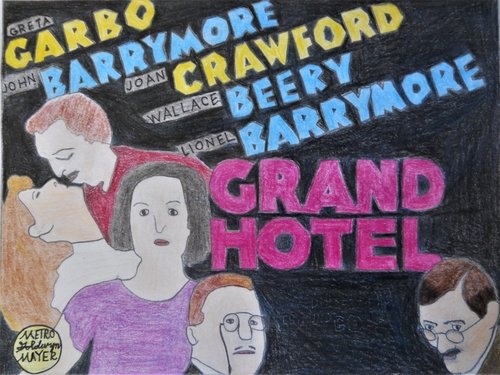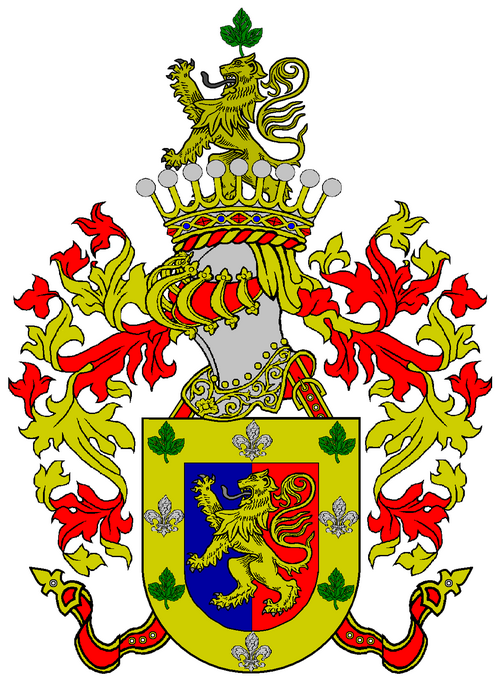
Casablanca
Released: 1943-01-15
In Casablanca, Morocco in December 1941, a cynical American expatriate meets a former lover, with unforeseen complications.
Drama
Romance
8.2 / 5487
Duration: 102 min.
Budget: $878.0k
Revenue: $10.5M
Trailer
Gallery
Reviews

barrymost
Rating:9/10
"Everybody comes to Rick's," or so they say. It's the middle of WWII, and one evening a certain lady walks into Rick Blaine's popular cafe. As the familiar notes of "As Time Goes By" drift through the hazy atmosphere of the cafe, Rick's life begins to get really complicated. The top-notch cast is, I think, a big part of what makes this film so memorable, and much-heralded through the years. The script is truly well-written and moving. My only complaint is, how could they do something so awful as killing off Peter Lorre within the first quarter of the film? Would I recommend? Overall, yes. There's a reason people cite this as one of the best films ever made. Though there are others I like much more, it is very, very good.

John Chard
Rating:10/10
You must remember this... Are my eyes really brown? Casablanca is one of those films that needs no introduction - or in truth - any more in-depth dissection as to its worth. Over the years it has become one of the most quoted ever pictures (sometimes wrongly), and in reality it's arguably more iconic than it is a work of art. Although a truly "A" list production for 1942, fact is nobody in and around the film expected it to be anything other than a good piece that will put bums on the seats in the theatres. Solidly received on release and riding in on the wave of the Allies inroads into North Africa, Casablanca steadily overcame the much discussed production troubles (the script was practically rewritten daily) to be where it is now, one of the most loved film's of all time. I wouldn't mention Paris, it's poor salesmanship! So what is it about Casablanca that makes it so cherished and adored by each and every generation?. I just know that each time I view it (yearly) it's like falling in love again, each viewing brings a new and emotionally driven fulfilment. Tears flow, sad ones and happy ones, an overriding feeling that romantic idealism isn't dead, to which Casablanca becomes my personal myth buster. Thematic redemption brings a joyous reward, even as our daydreams about lost chances and lost loves hangs heavy in and around Rick's Café Américain. Everything about Casablanca is right, from the flawless direction (Michael Curtiz) to the iconic music, and of course the magnificent characters that are brought to life by the incredibly tight and effective cast. It may not be the greatest film of all time, but to me, and those who let it into their lives, it's one of the best friends anyone could ever hope to have. 10/10
Hover to reveal

CinemaSerf
Rating:8/10
I've just seen this on a big screen for the first time in over thirty years - no enhancements, 4K, HD - just as Michael Curtiz saw it back in 1942 and it's a cracking piece of cinema. "Rick Blaine" (Humphrey Bogart) runs his Casablanca café as a literal oasis in the North African desert - a refuge for all sorts fleeing the oppression of the Nazis in nearby Europe. Enter "Ilsa" (Ingrid Bergman) and her husband, a Czech resistance leader "Hector Lazlo" (Paul Henried) and we discover that "Rick" and her have a past, and when the pursuing "Maj. Strasser" (Conrad Veidt) and local police chief Claude Rains ("Capt. Renault") get involved in this cocktail of deceit and duplicity things gradually come to the boil in a wonderfully evocative, sophisticated fashion. Bogart and Bergman positively smoulder; the chemistry is electric - she, as usual, doesn't actually act - she is just herself, and that's all she needs to do. Rains is great as the conniving policeman as is Veidt delivering the rather sparse, but no less potent, dialogue perfectly. Like most of the best films, the key to this is it's (seemingly effortless) simplicity - and this one also has a wonderful musical score to complement the tensely directed, eerily shot, story augmented by an hugely talented supporting cast with the likes of Peter Lorre and the superbly sleazy Sydney Greenstreet. There was a great deal wrong and inhibiting with the "studio system" that prevailed at the time, but when it did work it could pull together an astonishing collection of people in front of, and behind the camera and create masterpieces like this.
Hover to reveal

Filipe Manuel Neto
Rating:10/10
**One of the best movies of all time.** Unlike some people, I believe that there are perfect movies. It doesn't happen easily, but they do exist, and I'm pretty sure this is one of them. A classic in its own right, which has withstood the test of time and continues to win sympathies today, it is one of the most outstanding films in American cinema, a work that goes beyond aesthetics, art and culture, and which, over the decades, became part of the collective memory, part of the universal cultural heritage. The film was made in 1942, in the midst of World War II, and its production was conditioned by severe restrictions on the use of raw materials considered important for the American war effort. So many of the sets are recycled, they were used in a number of other Warner films and adapted here. Another direct consequence that the war brought to this film is the huge amount of real refugees that made up the technical team and the extras, and who are deeply emotionally moved in that famous scene where the French anthem, sung with all their lungs, completely drowns out the chorus of German officers while singing a patriotic march. The script brings us a love story: Rick and Ilsa meet and fall in love quickly in Paris. However, after a few days, the arrival of the victorious Germans in the city forces them to flee, and makes her decide to end the romance. Years later, Rick finds himself established with a bar in the city of Casablanca, in a part of Morocco controlled by the Free France, and where many refugees drink, gamble and seek the money necessary to pay the passes and visas that the authorities demand to be able to go to Portugal, a neutral country where they can, if they wish, head to the United States. It is there that the two lovers end up meeting again, in the midst of a plot that also includes a corrupt French officer, a ruthless German officer and two stolen passes, which everyone seems to want. The cast is elegantly led by two of the biggest stars of their time: on the one hand, the heartthrob Humphrey Bogart, with his characteristic voice and pose, impeccable in one of the most complete and powerful works of his career. He knew perfectly how to give his character a pleasant dose of cynicism, self-centeredness and disenchantment. On the other hand, the beautiful and intelligent Ingrid Bergman in one of her life's works. The film also has good performances by several supporting actors, such as Peter Lorre, Sydney Greenstreet, Conrad Veidt and also Paul Henreid and Claude Rains. Technically, we have great praise for the masterful direction of Michael Curtiz, who had the wisdom to give the film the pace, ambience and elegance it needed to be able to flourish and marvel. With discreet production values and an effort to contain expenses, the film still never feels cheap, and there's never a moment where we can say that we didn't have money to buy a certain prop, to improve a specific set or costume. The cinematography works very well, and the filming work seems to have been impeccable, with some strategic and well-positioned zooms marking the most dramatic scenes and the juiciest dialogues. The soundtrack doesn't have very resonant themes, but it's impossible to forget “As Time Goes By” after we've seen this film.
Hover to reveal